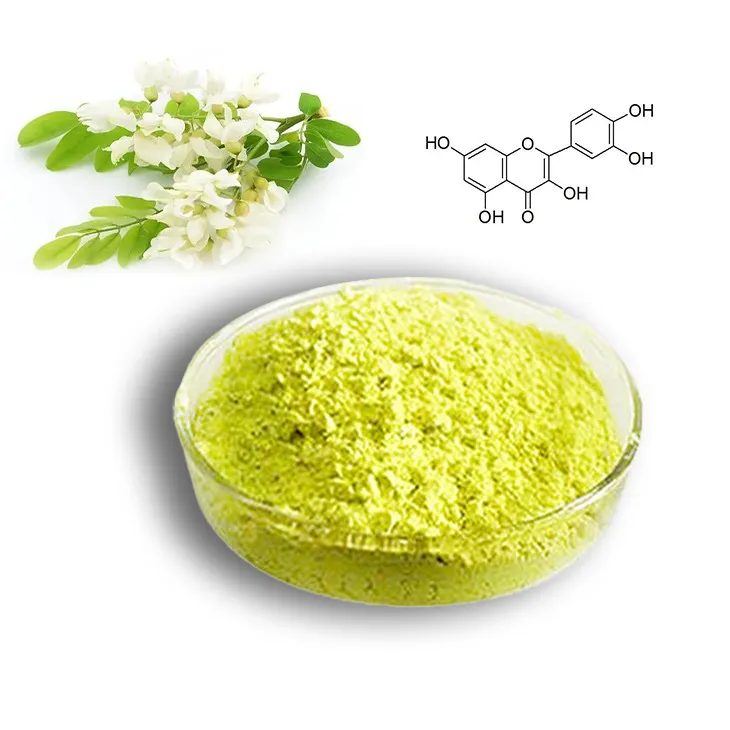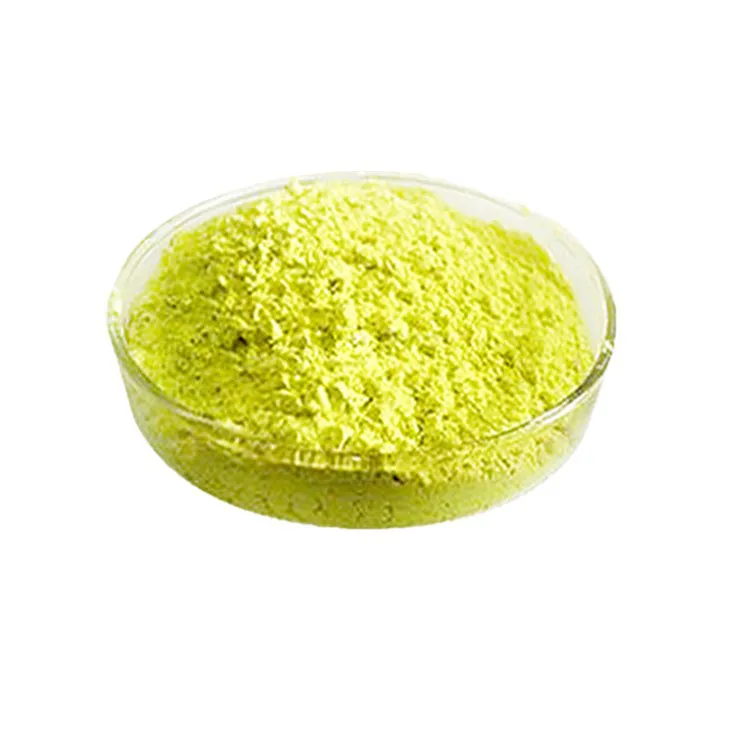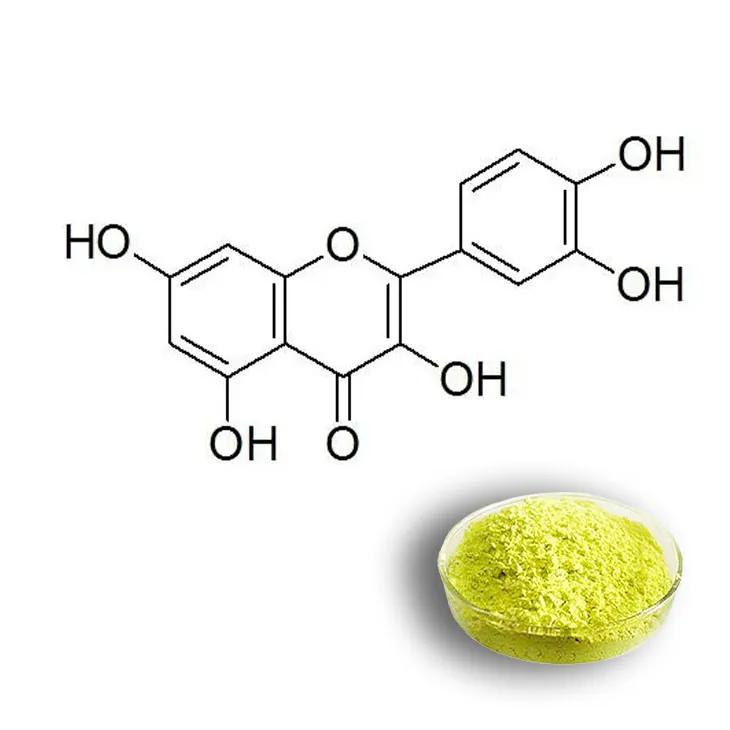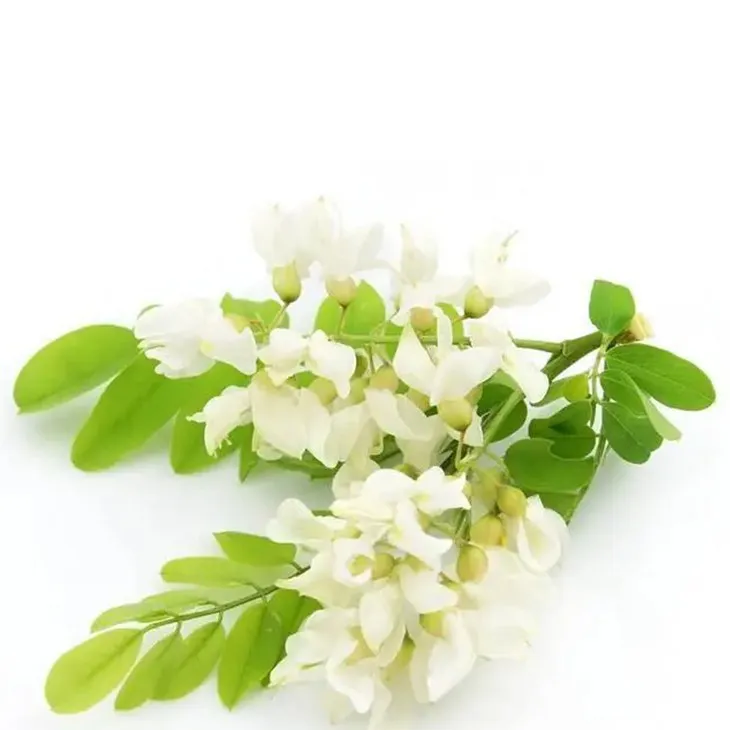- 0086-571-85302990
- sales@greenskybio.com
The Best Natural Sources of Quercetin.
2024-11-30

Introduction
Quercetin is a flavonoid that has been the subject of much scientific research in recent years. It is known for its powerful antioxidant properties and its potential to offer a wide range of health benefits. This article will explore the best natural sources of Quercetin, focusing on plants such as onions, apples, and berries. Understanding these sources can help individuals incorporate more Quercetin - rich foods into their diets and potentially improve their overall well - being.

What is Quercetin?
Quercetin is a plant - based compound that belongs to the flavonoid family. It is found in many fruits, vegetables, and grains. Flavonoids are known for their antioxidant, anti - inflammatory, and anti - microbial properties. Quercetin, in particular, has been shown to have a number of potential health benefits. For example, it may help to reduce the risk of chronic diseases such as heart disease, cancer, and neurodegenerative disorders. It may also have anti - allergic properties and can help to boost the immune system.

Onions: A Rich Source of Quercetin
Quercetin Content in Onions
Onions are one of the best natural sources of quercetin. Different types of onions may have varying levels of quercetin. Generally, red onions tend to have a higher quercetin content compared to white or yellow onions. The outer layers of the onion also contain more quercetin than the inner layers. On average, onions can contain anywhere from 10 - 100 mg of quercetin per 100 grams of fresh weight.
Health Benefits of Onions' Quercetin
The quercetin in onions offers several health benefits. It has anti - inflammatory properties that can help to reduce inflammation in the body. This can be beneficial for individuals with conditions such as arthritis or other inflammatory diseases. Additionally, the antioxidant properties of quercetin in onions can help to protect cells from damage caused by free radicals. This may reduce the risk of developing certain types of cancer, such as colon cancer. Onions' quercetin may also have a positive impact on heart health by helping to lower blood pressure and cholesterol levels.
How to Incorporate Onions into Your Diet
There are many ways to include onions in your diet. You can add sliced onions to salads, sandwiches, or wraps. They are also a key ingredient in many cooked dishes, such as soups, stews, and casseroles. Onions can be caramelized to add a sweet and savory flavor to dishes. Additionally, pickled onions can be a delicious and healthy addition to your meals.

Apples: Another Great Source of Quercetin
Quercetin Content in Apples
Apples are a popular and widely - available fruit that is also a good source of quercetin. The skin of the apple contains a significant amount of quercetin. In fact, most of the quercetin in apples is found in the peel. Different apple varieties may have different levels of quercetin, but on average, apples can contain around 5 - 15 mg of quercetin per 100 grams of fresh weight.
Health Benefits of Apples' Quercetin
The quercetin in apples has been associated with several health benefits. Like the quercetin in onions, it has antioxidant and anti - inflammatory properties. These properties can help to protect the body against oxidative stress and inflammation. Apples' quercetin may also play a role in improving gut health. It can help to promote the growth of beneficial gut bacteria and may reduce the risk of developing gastrointestinal disorders. Additionally, consuming apples, which are rich in quercetin, has been linked to a lower risk of developing heart disease and certain types of cancer.
How to Incorporate Apples into Your Diet
Apples can be eaten in a variety of ways. They can be eaten whole as a convenient and healthy snack. Sliced apples can be added to oatmeal, yogurt, or cereal for added flavor and nutrition. Apples can also be used to make juices, ciders, or baked goods such as pies and muffins. However, it is important to note that when making apple juice, much of the quercetin may be lost if the peel is removed.

Berries: A Colorful Source of Quercetin
Quercetin Content in Berries
Berries are not only delicious but also a great source of quercetin. Different types of berries have different levels of quercetin. For example, cranberries are known to have a relatively high quercetin content. Blueberries and strawberries also contain significant amounts of quercetin. In general, berries can contain anywhere from 5 - 50 mg of quercetin per 100 grams of fresh weight.
Health Benefits of Berries' Quercetin
The quercetin in berries offers numerous health benefits. The antioxidant properties of quercetin in berries can help to prevent cell damage and may slow down the aging process. Berries' quercetin may also have anti - cancer properties. It can help to inhibit the growth of cancer cells and may reduce the risk of developing certain types of cancer, such as breast cancer. Additionally, the anti - inflammatory properties of quercetin in berries can be beneficial for individuals with skin conditions such as eczema or psoriasis. Berries are also known for their positive impact on cognitive function, and the quercetin they contain may play a role in this.
How to Incorporate Berries into Your Diet
Berries can be easily incorporated into your diet. They can be eaten fresh as a snack or added to salads. Berries are also a great addition to smoothies, providing both flavor and nutrition. They can be used to make jams, jellies, or sauces. Frozen berries are also a convenient option and can be used in baking or cooking throughout the year.
Comparing the Sources
When comparing onions, apples, and berries as sources of quercetin, each has its own advantages. Onions are a staple in many kitchens and can be easily added to a wide variety of dishes. They offer a relatively high amount of quercetin, especially red onions. Apples are a convenient and portable source of quercetin, and their consumption is associated with multiple health benefits. Berries, on the other hand, are not only rich in quercetin but also in other beneficial nutrients such as vitamins and fiber. The choice of which source to focus on may depend on personal taste, availability, and dietary preferences.
Conclusion
In conclusion, quercetin is a valuable nutrient with many potential health benefits. Onions, apples, and berries are all excellent natural sources of quercetin. By incorporating these foods into your diet, you can increase your intake of quercetin and potentially improve your overall health. Whether you choose to add more onions to your cooked dishes, enjoy an apple a day, or include a variety of berries in your diet, you are making a positive step towards a healthier lifestyle.
FAQ:
What are the health benefits of quercetin?
Quercetin is a flavonoid that has several health benefits. It has antioxidant properties, which can help protect cells from damage caused by free radicals. It may also have anti - inflammatory effects, potentially reducing inflammation in the body. Additionally, quercetin has been studied for its potential role in supporting heart health, improving immune function, and may even have anti - cancer properties, although more research is needed in this area.
How much quercetin is typically found in onions?
The quercetin content in onions can vary depending on the type and variety. Generally, onions can contain around 10 - 60 mg of quercetin per 100 grams. Red onions tend to have a relatively higher quercetin content compared to white or yellow onions.
Are apples a good source of quercetin?
Yes, apples are a good natural source of quercetin. The skin of apples contains a significant amount of this flavonoid. On average, there is about 4 - 16 mg of quercetin per 100 grams of apple flesh with skin. Eating apples with the skin on is a great way to get quercetin as well as other beneficial nutrients.
What berries are rich in quercetin?
Berries such as cranberries, blueberries, and elderberries are rich in quercetin. Cranberries, for example, can have around 12 - 25 mg of quercetin per 100 grams. Blueberries also contain a notable amount, contributing to their overall health - promoting properties. Elderberries are another excellent source, and they have been used in traditional medicine for their potential health benefits, which may in part be due to their quercetin content.
Why are natural sources of quercetin considered superior?
Natural sources of quercetin are considered superior because they come packaged with other beneficial nutrients, vitamins, and fiber. For example, when you get quercetin from an apple, you also get dietary fiber, vitamin C, and other antioxidants. These components work together synergistically to promote overall well - being. In contrast, synthetic quercetin supplements may not offer the same range of co - nutrients and may have potential side effects or interactions that are not as well - understood as those from natural sources.
Related literature
- Quercetin: A Promising Molecule for Health"
- "The Role of Quercetin - Rich Foods in Preventive Medicine"
- "Quercetin Sources and Their Impact on Human Health"
- ▶ Hesperidin
- ▶ Citrus Bioflavonoids
- ▶ Plant Extract
- ▶ lycopene
- ▶ Diosmin
- ▶ Grape seed extract
- ▶ Sea buckthorn Juice Powder
- ▶ Fruit Juice Powder
- ▶ Hops Extract
- ▶ Artichoke Extract
- ▶ Mushroom extract
- ▶ Astaxanthin
- ▶ Green Tea Extract
- ▶ Curcumin
- ▶ Horse Chestnut Extract
- ▶ Other Product
- ▶ Boswellia Serrata Extract
- ▶ Resveratrol
- ▶ Marigold Extract
- ▶ Grape Leaf Extract
- ▶ New Product
- ▶ Aminolevulinic acid
- ▶ Cranberry Extract
- ▶ Red Yeast Rice
- ▶ Red Wine Extract
-
Epimedium extract powder
2024-11-30
-
Kelp Extract Powder
2024-11-30
-
Fenugreek Extract Powder
2024-11-30
-
Wheat Germ Extract
2024-11-30
-
Nutmeg Extract
2024-11-30
-
Lemon Juice Powder
2024-11-30
-
Sophora Japonica Flower Extract
2024-11-30
-
Lemon Extract
2024-11-30
-
Bitter Melon Extract
2024-11-30
-
Honeysuckle Pollen
2024-11-30





















